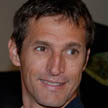I’m a Scientist is like school science lessons meet the X Factor! School students choose which scientist gets a prize of $1000 to communicate their work.
Scientists and students talk on this website. They both break down barriers, have fun and learn. But only the students get to vote.
This zone is the Boron Zone. It has a range of scientists studying all different topics. Who gets the prize? YOU decide!









Being trained as a scientist means that I am quite skeptical about most things, and often don’t accept things at face value like other people seem to sometimes. It means I ask a lot of questions, which some people find quite annoying! So yes, I think it has change the way I think about things. And I wish more people would think like this – then maybe politicians wouldn’t treat as as being so gullible!
In terms of time… the job can be quite demanding when everything hits at once – teaching, research deadlines – I end up working quite late and weekends for several weeks at a time. But there are plenty of other jobs like that I think – and it doesn’t help that I have perfectionist tendencies.
0
As Matthew says it does mean that you tend to question & analyse things more than perhaps you should. Being a scientists is also quite flexible in terms of work loads and hours so I find it easy to fit other things into my schedule like exercise and picking up kids from school etc.
0
As already suggested – scientists are trained to ask questions, particularly why.
While I would not describe myself as sceptical, I do question evidence that is presented and conclusions drawn. This applies to my work situation, but can also spill over to everyday life. This occasionally means I can be accused of being too analytical or logical.
On balance however I would consider such questioning as an incredibly useful!
0
Agree with what the others said. My husband gets really annoyed with me sometimes because I always want to understand WHY!!! Or how. Or when.
A lot of scientists work very long hours – sometimes just because they love it so much, sometimes because they have to. People who teach at universities as well as doing research often have to work very long hours. I am very luck in that way, the amount of work I have to do is reasonable for the amount of hours that I am paid to work. I actually choose to work part-time because I have a young child.
0
I agree with what the others have said: as a scientist, you tend to be sceptical of grandiose claims that are not backed up by any (or little) evidence. Being trained in critical thinking and solving problems can be useful in more aspects of life than just scientific research too. I find that it helps me make decisions about other things.
I don’t think that I analyse things more than I should though – I try my best not to overanalyse things too much! I think that applying logic and reasoning to most situations is the way to go, although you also have to recognise when it might not be appropriate.
In terms of the time I dedicate to science: my hours are quite flexible, but I work more than a 9 to 5 day usually. I have certain duties that I have to perform as other people are relying on me, but there are things which are entirely up to me. This means that you have to manage your time very well, (especially when there are deadlines to work with).
0